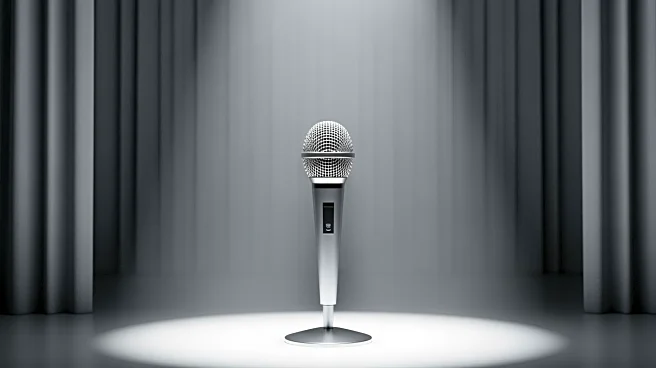What's Happening?
NFL Commissioner Roger Goodell has publicly defended the decision to feature Puerto Rican superstar Bad Bunny in the upcoming Super Bowl halftime show, despite criticism from various quarters, including President Trump. Speaking at the Fall League Meeting
in New York, Goodell emphasized the careful consideration behind the choice, acknowledging that selecting an artist for such a high-profile event often attracts controversy. Bad Bunny, known for his reggaeton music, was announced as the performer for Super Bowl LX, scheduled for February 8, 2026, in Santa Clara, California. The decision has sparked debate, with President Trump labeling it 'absolutely ridiculous.' Goodell, however, expressed confidence that the performance would be a 'great show' and a 'united moment,' highlighting Bad Bunny's understanding of the platform's significance.
Why It's Important?
The inclusion of Bad Bunny in the Super Bowl halftime show represents a significant cultural moment, reflecting the growing influence of Latin music in mainstream American entertainment. This decision underscores the NFL's efforts to diversify its entertainment offerings and appeal to a broader audience. Bad Bunny's performance could potentially attract millions of viewers globally, enhancing the league's international reach. However, the controversy surrounding the choice also highlights ongoing cultural and political tensions, particularly given Bad Bunny's previous criticisms of U.S. immigration policies. The event could serve as a platform for broader discussions on cultural representation and inclusivity in major American events.
What's Next?
As the Super Bowl approaches, anticipation and scrutiny surrounding Bad Bunny's performance are likely to intensify. The NFL may face further criticism or support from various stakeholders, including fans, political figures, and cultural commentators. Bad Bunny's performance could influence future halftime show selections, potentially paving the way for more diverse artists to take center stage. Additionally, the event may prompt discussions on the role of entertainment in bridging cultural divides and addressing political issues. The league's handling of the situation will be closely watched, potentially impacting its reputation and future entertainment strategies.
Beyond the Headlines
The decision to feature Bad Bunny at the Super Bowl halftime show could have deeper implications for the music industry, particularly in terms of Latin music's integration into mainstream American culture. It may encourage other major events to consider more diverse lineups, reflecting changing demographics and cultural preferences. Furthermore, the controversy highlights the intersection of entertainment and politics, as artists increasingly use their platforms to address social and political issues. This development could influence how future performers approach their roles in high-profile events, balancing entertainment with advocacy.
















